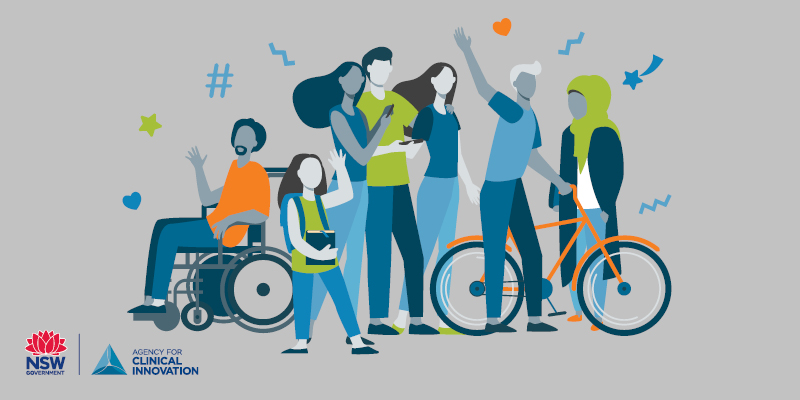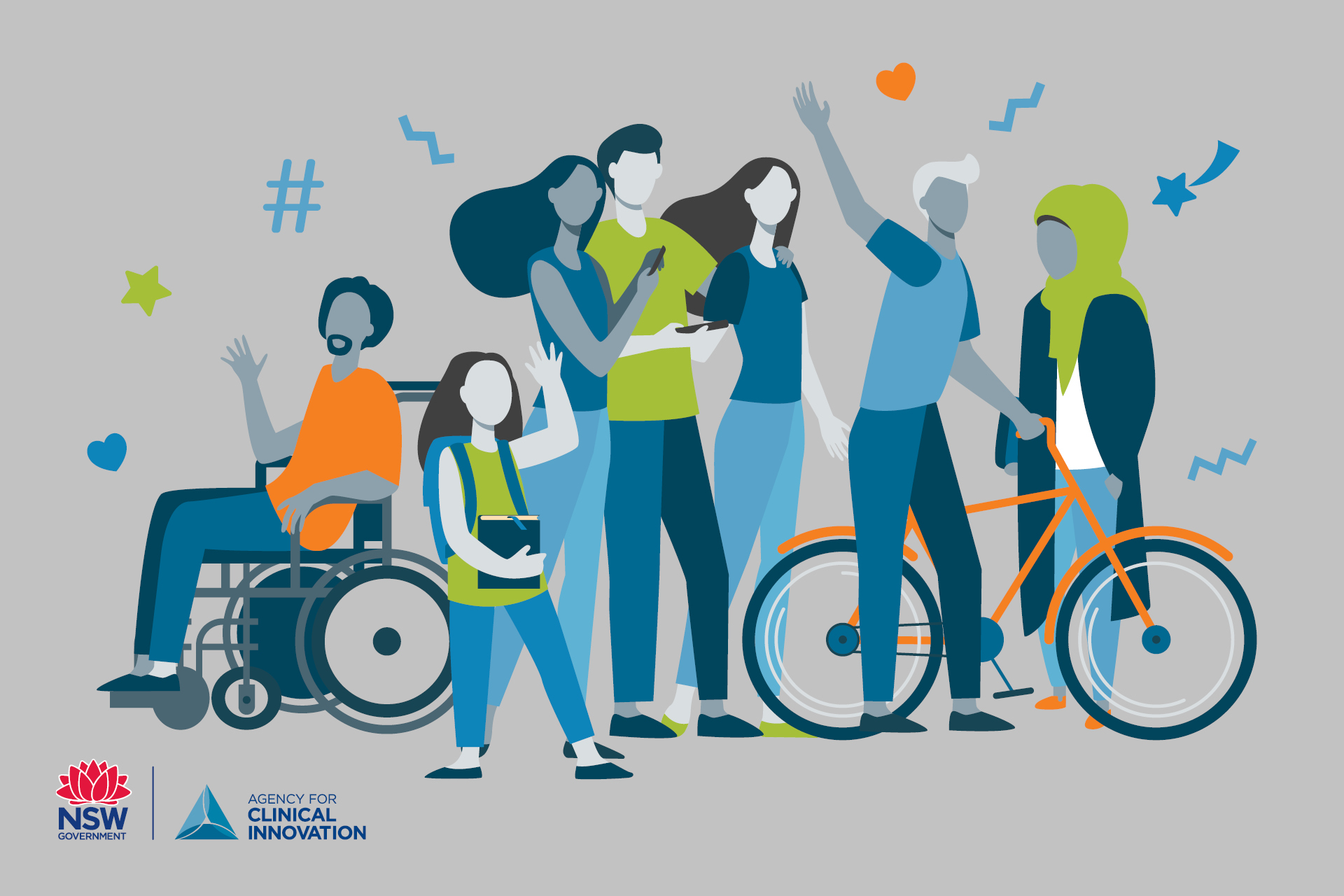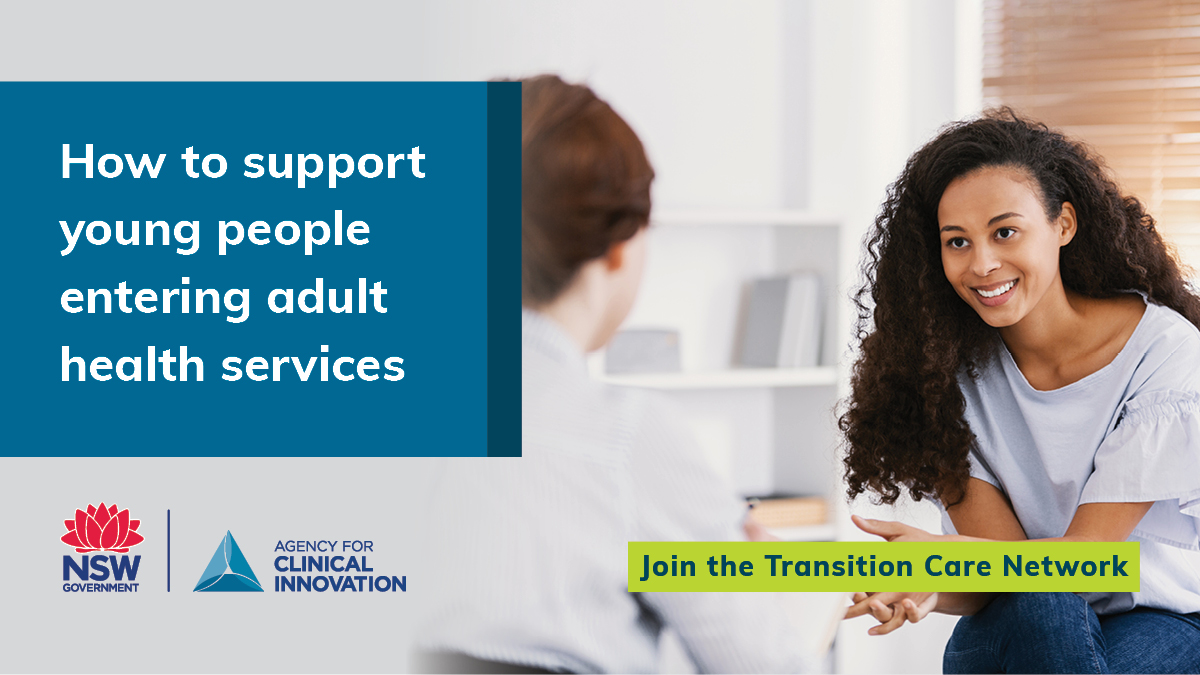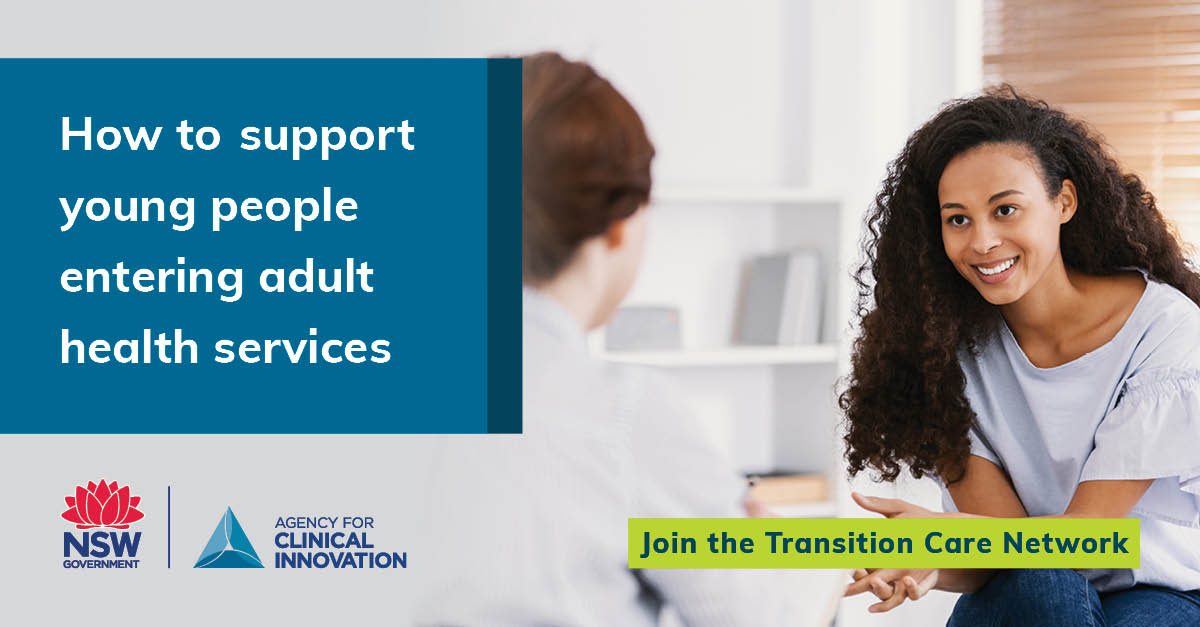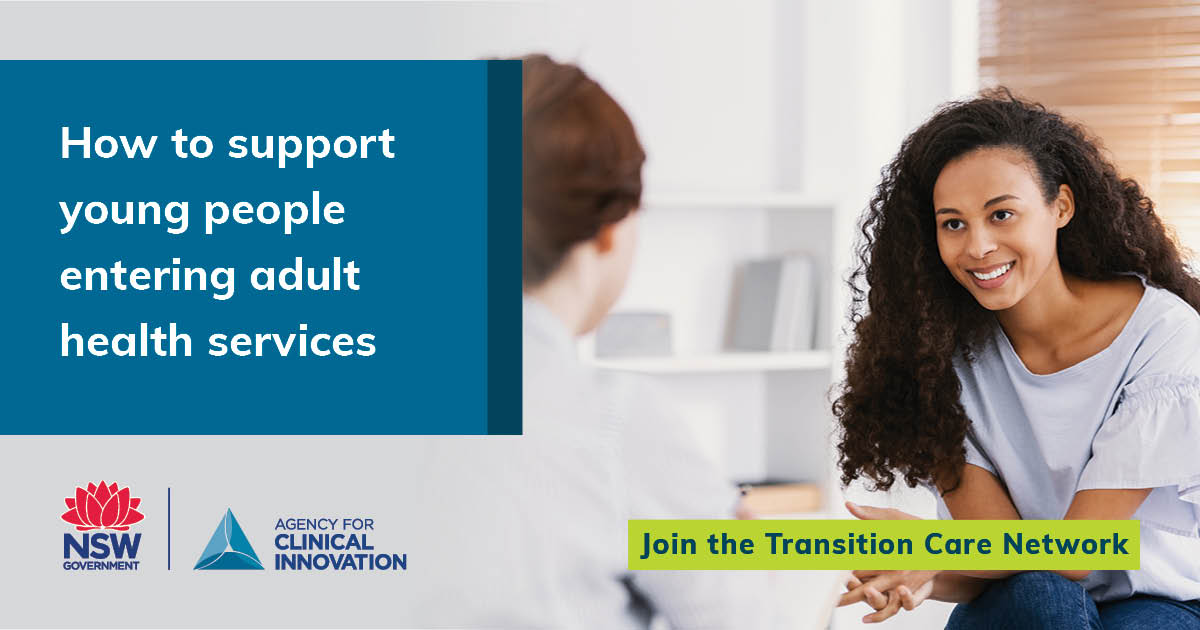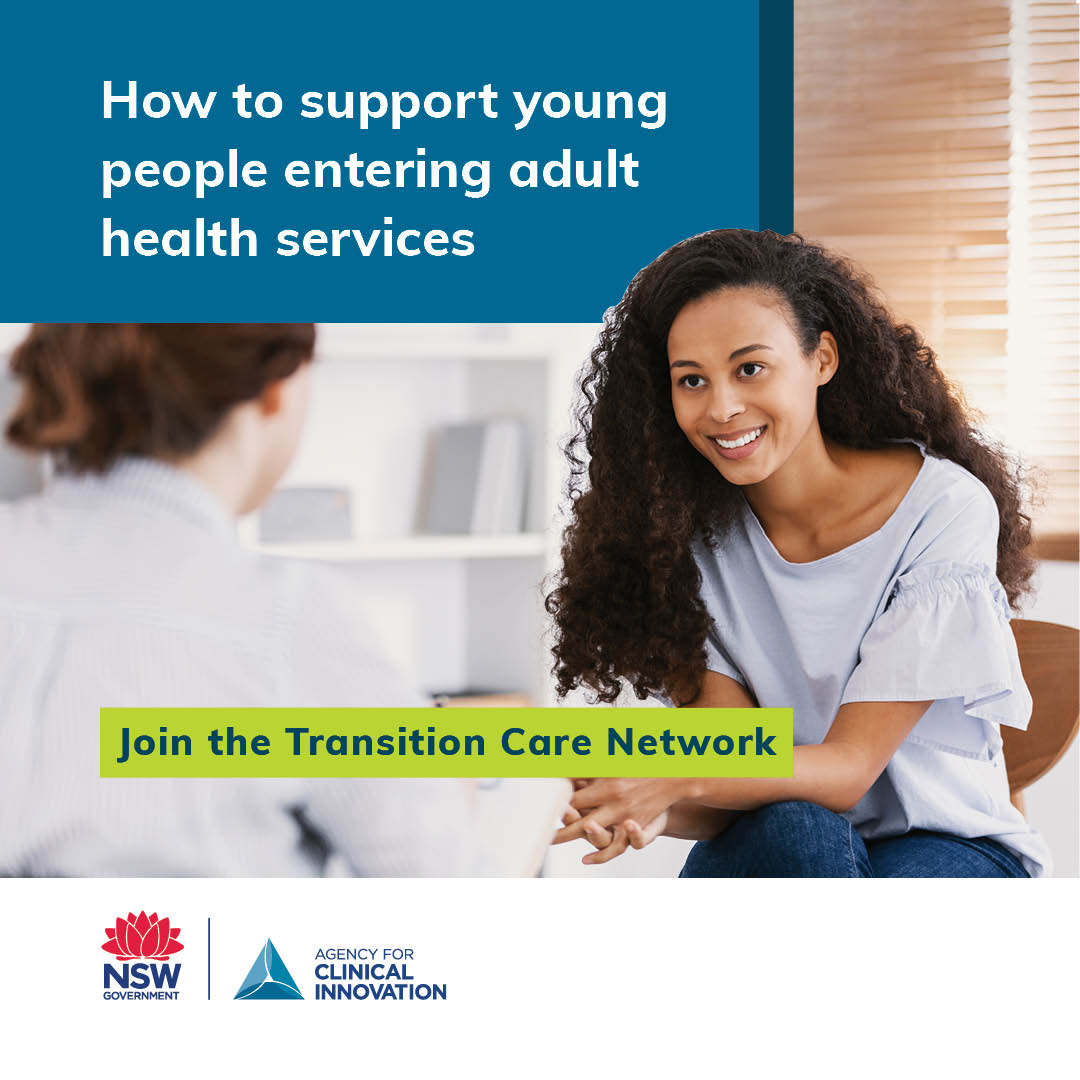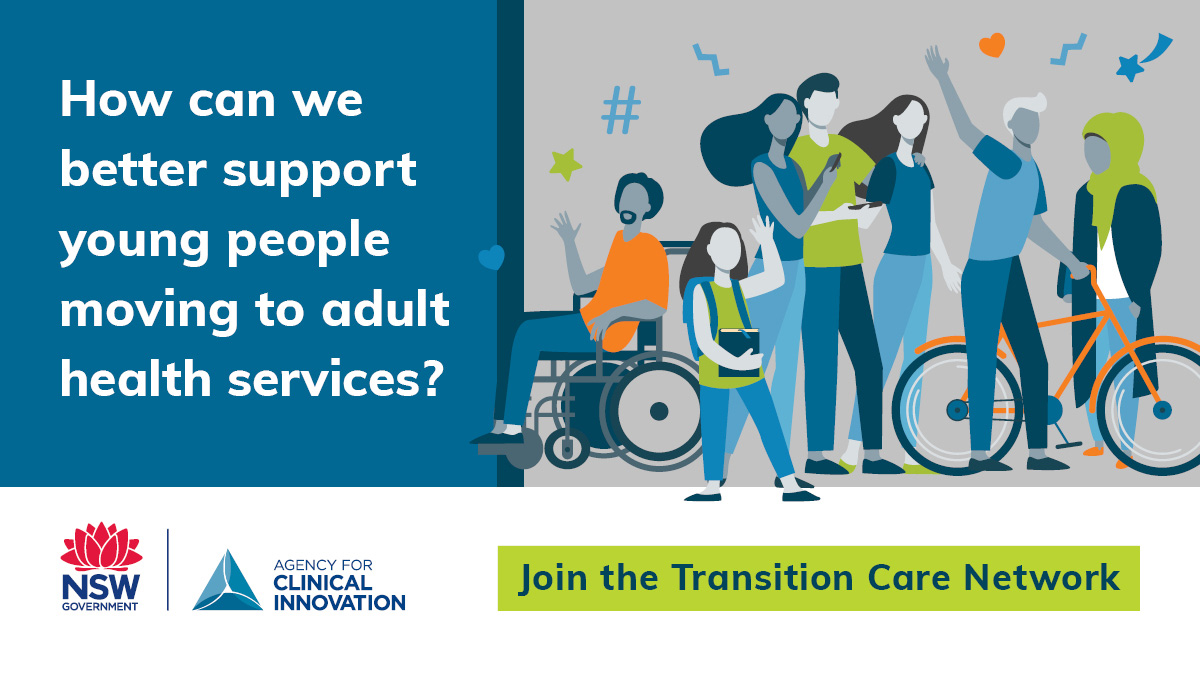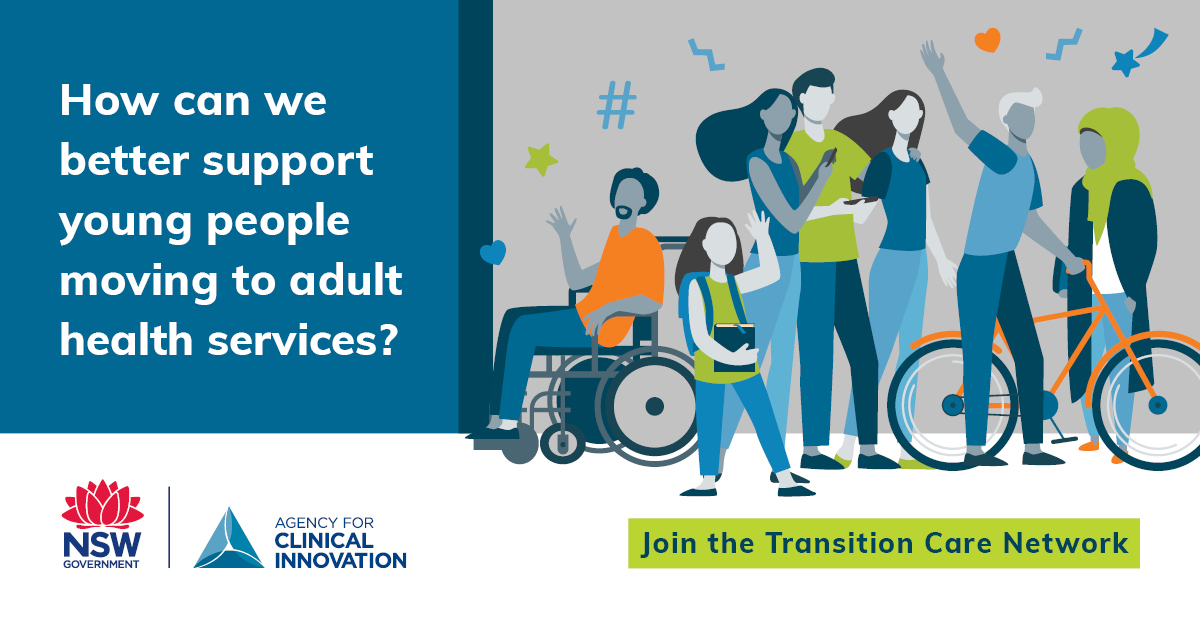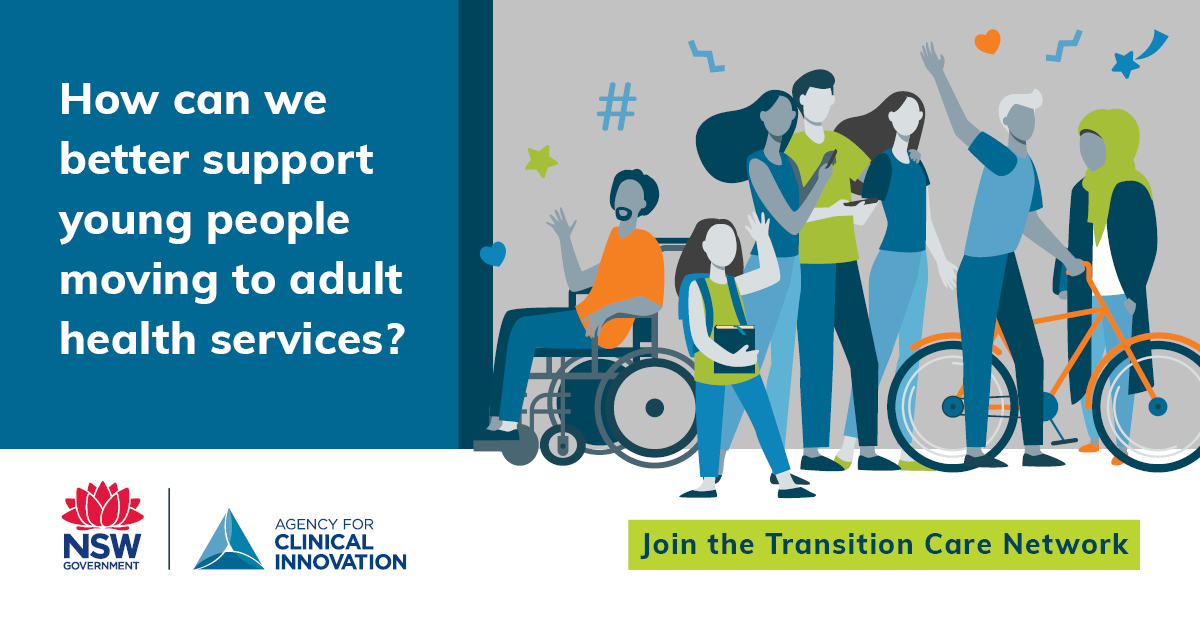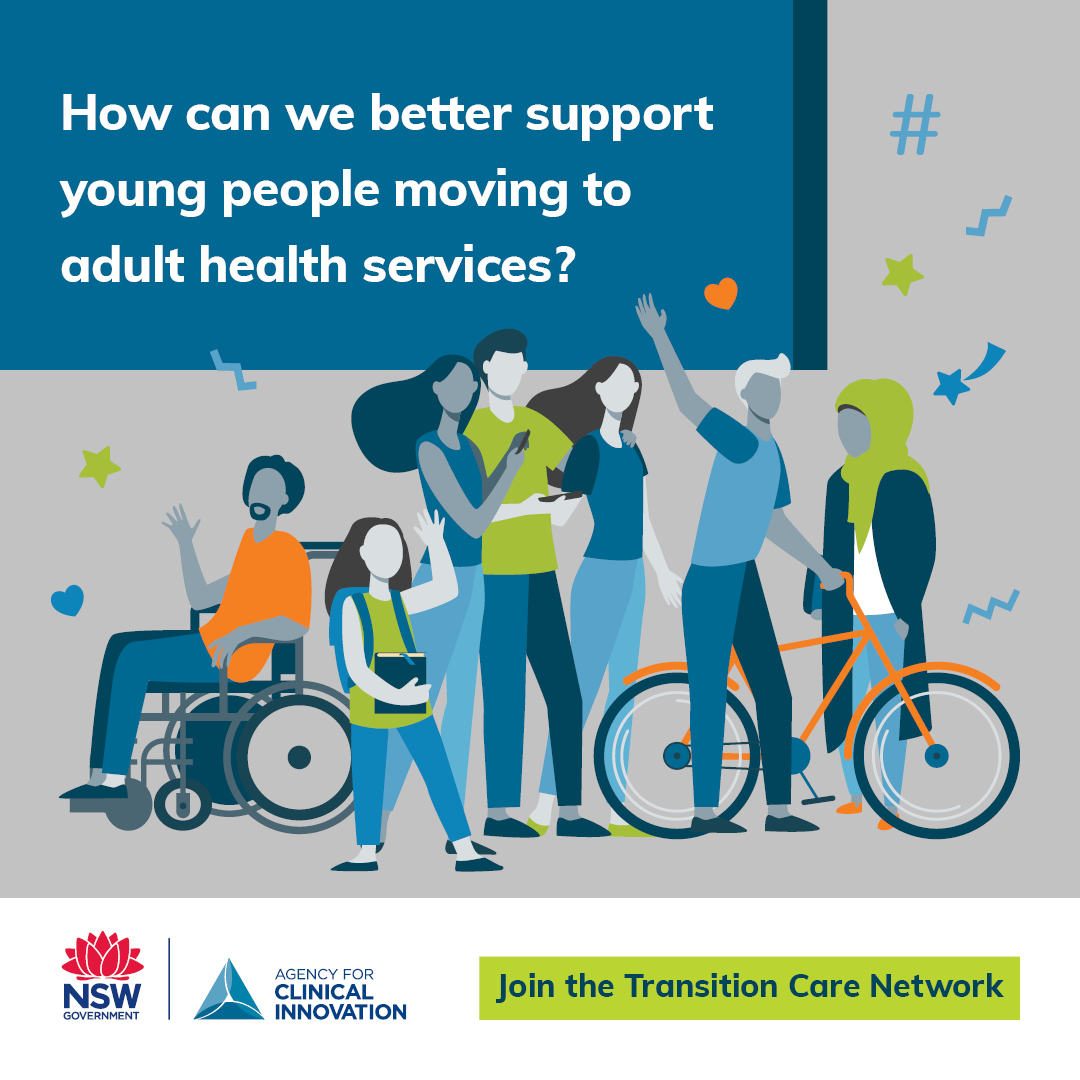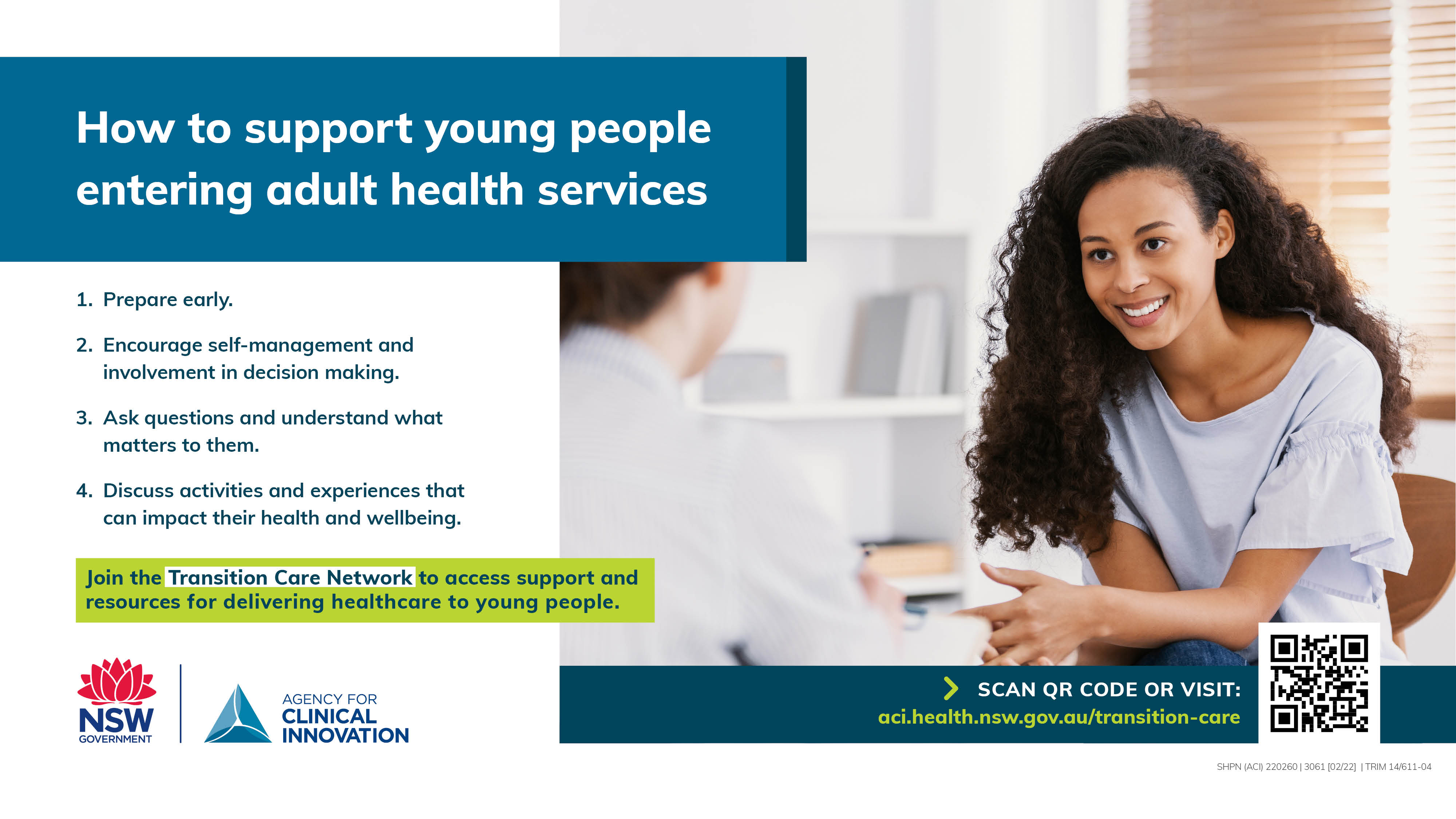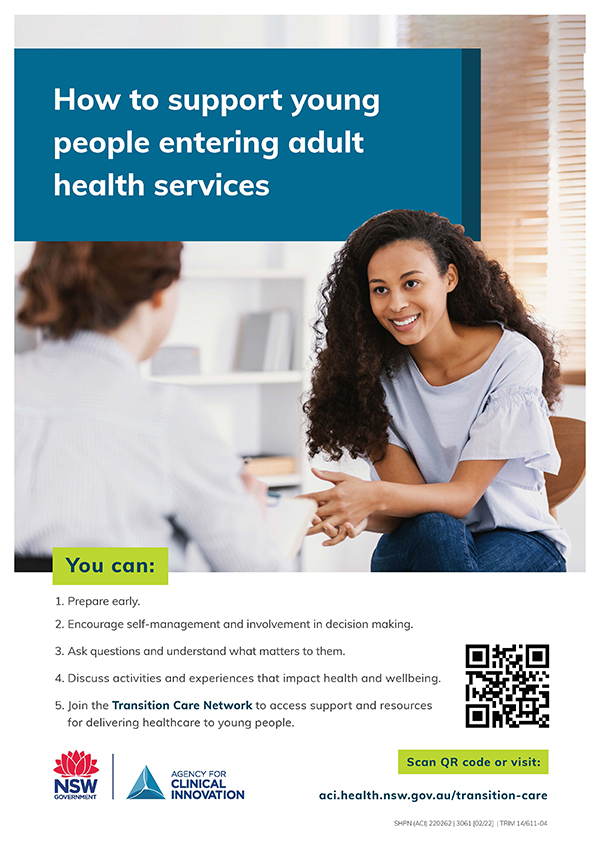![]() Many young people with chronic health conditions arising in childhood are now living well into adulthood, which is increasing demand for adult services. Our Transition Care Network works to improve continuity of care for these young people (14 to 25 years of age), as they move from paediatric to adult health services.
Many young people with chronic health conditions arising in childhood are now living well into adulthood, which is increasing demand for adult services. Our Transition Care Network works to improve continuity of care for these young people (14 to 25 years of age), as they move from paediatric to adult health services.
The network brings together clinicians, health managers, young adults, families and carers to design and implement innovative ways to improve care delivery.
The ACI Transition Care Service, a statewide care coordination service supporting young people as they move into adult health services, is also available. It is aligned with Trapeze, a Sydney Children’s Hospitals Network transition care program.
To continue improving transition care for young people, the Transition Care Network is seeking the input, expertise and experiences of clinicians and consumers.
Please use these communication assets to:
- help clinicians in the adult and paediatric health system understand the important role they play supporting young people transitioning to adult care, and encourage them to join the network
- raise awareness among patients, their family and carers about the support provided by the network, and encourage them to join the network to share their lived experience.
Article for newsletters, websites and intranets
For health professionals and clinicians
How to support young people transitioning to adult health services
Being a young person is a time of change. For those with a chronic illness or disability, it can be even more challenging, especially as they transition from paediatric to adult health services.
Transitioning to adult care isn’t a one-off event; it’s a journey requiring the involvement and support of many different clinicians and services, working collaboratively with the young person, their family and carers.
The Agency for Clinical Innovation’s (ACI) Transition Care Network is encouraging clinicians with patients aged between 14 and 25 years to become familiar with best practice transition care.
Young people are best supported with an individualised transition plan that considers all aspects of their life. It’s important to:
- prepare early and encourage self-management and involvement in decision making (if developmentally appropriate)
- offer holistic care and build rapport by asking and understanding what matters to each individual person – this can make a big difference to a young person who is navigating new health services
- consider and discuss the young person’s experiences and activities. For example, things such as alcohol and drug use; sexual activity; and increased independence through study, work and living arrangements are important.
This can all make care more effective and health outcomes better.
The Transition Care Network works with clinicians, health managers, young people, families and carers to design and implement innovative ways to improve the continuity of care as young people move to adult health services.
Involvement from clinicians, patients and carers can make a significant difference to advancing transition care practices to ensure the best outcomes for young people.
Access information, support and resources for delivering healthcare to young people transitioning to adult care by joining the network. Visit aci.health.nsw.gov.au/networks/transition-care
For young people, their family or carers
Tips for young people transitioning to adult health services
Being a young person is a time of change. If you have a chronic illness or disability, it can be even more challenging while you transition from children’s to adult health services.
The Agency for Clinical Innovation (ACI) Transition Care Network is encouraging young people, their family and carers to learn more about what to expect when transitioning to adult services, including the support available.
Transitioning to adult care isn’t a one-off event; it’s a journey where a young person, their family and carers work collaboratively with many different clinicians and services to move into the adult health system.
Young people need an individualised transition plan that considers all aspects of their life. If you don’t have one already, ask your health services about it. It’s also important to consider and discuss the following:
- Prepare early and, if you can, get involved with managing and making decisions about your own health.
- Be honest with your health services. You might be trying new things that affect your health, such as alcohol or drug use and sexual activity; or becoming more independent through study, work and living arrangements.
- Understand that your health services should consider all aspects of your life when giving health advice. Always ask questions and seek help when you need it.
- Remember, it takes time; and it might take longer than you plan for.
The ACI Transition Care Network works to improve continuity of care as young people move to adult health services. The ACI runs a Transition Care Service, which is available to support you.
Input from patients, their family and carers can make a significant difference to advancing transition care services.
Join the ACI Transition Care Network to share your lived-experience. No other experience is necessary, and you’ll be joining others sharing their personal views. You can help ensure the best outcomes for young people in the health system.
Find out more and join the network on the ACI website to share your views.
Video
Download the Transition Care Network video.
Social media content
You can also share LinkedIn content or retweet content from @nswaci
For health professionals and clinicians
Option 1:
Your expertise can have a positive impact on the life of a young person with a chronic condition. Join the @nswaci #TransitionCare Network and help improve the experience of young people transitioning from paediatric to adult health services: https://bit.ly/transition-care-network
Option 2:
Do you have patients aged between 14 and 25 years? Learn how #TransitionCare can help you achieve the best health outcomes for these patients: https://bit.ly/transition-care-network
Option 2:
Transitioning to adult care isn’t a one-off event, it’s a journey. Clinicians work collaboratively with the young person and their support people to move them into the adult health system. Learn more https://bit.ly/transition-care-network
For young people, their family or carers
Option 1:
What do you wish the healthcare system knew about moving from children’s to adult health services? Join the ACI’s #TransitionCare Network and make your voice heard: https://bit.ly/transition-care-network
Option 2:
What is your advice for young people with a chronic illness or disability when they are moving to adult health services? More info about @nswaci #TransitionCare and support: https://bit.ly/transition-care-network
Poster and digital screen
DL flyer (digital and print)
This flyer is for young people, their family and carers, or clinicians to share with their patients. It can be shared electronically or printed in-house.
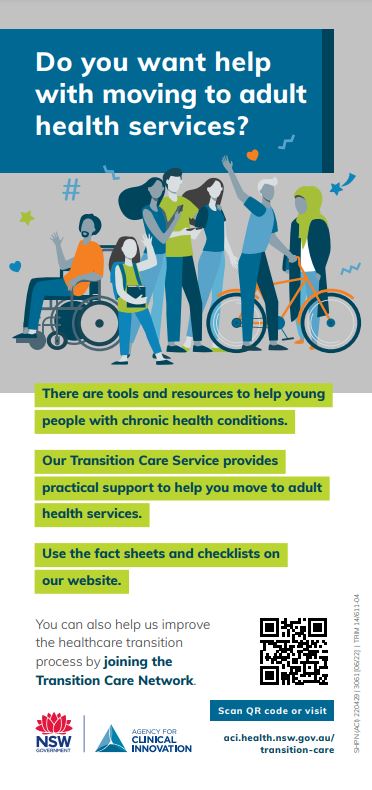 Download Transition Care Service DL flyer for young people |
About the ACI Transition Care Network
Extra information you can use in communications.
- Many young people with chronic conditions arising in childhood are now living well into adulthood. This is increasing the demand for adult health services to manage these patients.
- The Agency for Clinical Innovation (ACI) Transition Care Network was established in 2004. The network works to improve continuity of care for young people aged between 14 and 25 years with chronic health problems, moving from paediatric to adult health services.
- The network brings together clinicians, health managers, young people, families and carers to design and implement innovative ways to improve the way care is delivered.
- The network is led by an Executive Committee, including around 26 doctors, nurses, allied health professionals and consumers.
- The network has more than 180 members, including clinicians, consumers and representatives from the NSW Ministry of Health, local health districts, specialty health networks, and government and non-government organisations.
- The ACI also manages the Transition Care Service, which is a statewide care coordination service supporting young people as they move into adult health services. It is closely aligned with Trapeze; a Sydney Children’s Hospitals Network transition care program.
- Network members are central to the success of the network; they:
- can contribute to projects that make a real impact in the lives of young people
- have the opportunity to participate in webinars, comment on important documents and provide advice on services
- receive quarterly newsletters with important information about transitional care
- can join the Executive Committee and working groups through an expression of interest process.
- You can join the ACI Transition Care Network on the ACI website.


